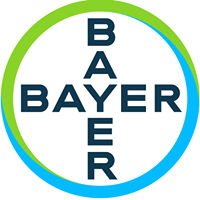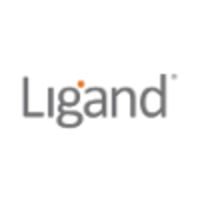预约演示
更新于:2025-05-07
PGD2 receptor
更新于:2025-05-07
基本信息
别名 DP、DP1、PGD receptor + [5] |
简介 Receptor for prostaglandin D2 (PGD2). The activity of this receptor is mainly mediated by G(s) proteins that stimulate adenylate cyclase, resulting in an elevation of intracellular cAMP. A mobilization of calcium is also observed, but without formation of inositol 1,4,5-trisphosphate (By similarity). Involved in PLA2G3-dependent maturation of mast cells. PLA2G3 is secreted by immature mast cells and acts on nearby fibroblasts upstream to PTDGS to synthesize PGD2, which in turn promotes mast cell maturation and degranulation via PTGDR (By similarity). |
关联
25
项与 PGD2 receptor 相关的药物作用机制 PGD2 receptor调节剂 [+1] |
在研适应症 |
非在研适应症- |
最高研发阶段批准上市 |
首次获批国家/地区 日本 |
首次获批日期2000-03-10 |
作用机制 PGD2 receptor拮抗剂 |
非在研适应症 |
最高研发阶段临床前 |
首次获批国家/地区- |
首次获批日期1800-01-20 |
144
项与 PGD2 receptor 相关的临床试验CTRI/2022/11/047189
A Randomized, Double-Blinded, Placebo-Controlled, Parallel-Design, Multi-Centre, Adaptive Phase II/Phase III Study to Evaluate the Efficacy and Safety of Ramatroban along with the standard of care in Hospitalized Subjects with SARS-CoV-2 Infection. - RAMBAN-1
开始日期2022-11-10 |
申办/合作机构- |
NCT05706454
Randomized, Double-Blind, Placebo-Controlled, Parallel-Design, Multi- Centre, Adaptive Phase 2/Phase 3 Study To Evaluate The Efficacy And Safety Of Ramatroban Along With The Standard Of Care In Subjects Hospitalized For SARS-CoV-2 Infection
Phase II/Phase III study to evaluate the safety and efficacy of Ramatroban 75 mg tablet against Placebo in subjects hospitalized for pneumonia due to SARS-CoV-2 infection.
Approximately 324 eligible subjects will be randomized in a 1:1 ratio to one of the two treatment groups.
Group I: Ramatroban 75 mg tablet + Standard of care; Group II: Placebo + Standard of care.
Phase 2
Primary Objective:
To evaluate the safety of Ramatroban 75 mg tablet with the standard of care against Placebo with the standard of care in COVID-19 hospitalized subjects.
Secondary Objective:
To assess the efficacy of Ramatroban 75 mg tablet with the standard of care against Placebo with the standard of care in COVID-19 hospitalized subjects.
Phase 3
Primary Objective:
To evaluate the efficacy of Ramatroban 75 mg tablet with the standard of care against Placebo with the standard of care in COVID-19 hospitalized subjects.
Secondary Objective:
To evaluate the safety of Ramatroban 75 mg tablet with the standard of care against Placebo with the standard of care in COVID-19 hospitalized subjects.
Long COVID [Follow-up Phase- Objectives- (Phase 2 & 3)]
To examine lipid mediators, specifically thromboxane A2, prostaglandin D2, F2-isoprostane and/or their metabolites in convalescent subjects after treatment.
To assess the efficacy of Ramatroban administered during the acute illness in preventing/mitigating subsequent development of long COVID / PASC
Approximately 324 eligible subjects will be randomized in a 1:1 ratio to one of the two treatment groups.
Group I: Ramatroban 75 mg tablet + Standard of care; Group II: Placebo + Standard of care.
Phase 2
Primary Objective:
To evaluate the safety of Ramatroban 75 mg tablet with the standard of care against Placebo with the standard of care in COVID-19 hospitalized subjects.
Secondary Objective:
To assess the efficacy of Ramatroban 75 mg tablet with the standard of care against Placebo with the standard of care in COVID-19 hospitalized subjects.
Phase 3
Primary Objective:
To evaluate the efficacy of Ramatroban 75 mg tablet with the standard of care against Placebo with the standard of care in COVID-19 hospitalized subjects.
Secondary Objective:
To evaluate the safety of Ramatroban 75 mg tablet with the standard of care against Placebo with the standard of care in COVID-19 hospitalized subjects.
Long COVID [Follow-up Phase- Objectives- (Phase 2 & 3)]
To examine lipid mediators, specifically thromboxane A2, prostaglandin D2, F2-isoprostane and/or their metabolites in convalescent subjects after treatment.
To assess the efficacy of Ramatroban administered during the acute illness in preventing/mitigating subsequent development of long COVID / PASC
开始日期2022-11-10 |
申办/合作机构 |
NCT04705597
A Multicenter, Randomized, Double-blind, Placebo-controlled, Phase 2 Study to Investigate the Efficacy and Safety of BGE-175 in Hospitalized Adults With COVID-19
The primary objectives of this study are to evaluate the safety, tolerability, and efficacy of BGE-175 in participants ≥ 50 years of age hospitalized with documented COVID-19.
开始日期2021-03-18 |
申办/合作机构 |
100 项与 PGD2 receptor 相关的临床结果
登录后查看更多信息
100 项与 PGD2 receptor 相关的转化医学
登录后查看更多信息
0 项与 PGD2 receptor 相关的专利(医药)
登录后查看更多信息
1,796
项与 PGD2 receptor 相关的文献(医药)2025-06-02·Journal of Experimental Medicine
Enteric tuft cell inflammasome activation drives NKp46+ILC3 IL22 via PGD2 and inhibits Salmonella
Article
作者: Gibson, Alexis R. ; Churchill, Madeline J. ; Krug, Stefanie ; Christopher, Tighe ; Warner, Lindsey ; Pandeya, Ankit ; Tait Wojno, Elia D. ; Mitchell, Patrick S. ; Mooney, Bridget M. ; Smita, Shuchi ; Bauer, Renate ; Rauch, Isabella ; Honodel, Roslyn
2025-06-01·Theriogenology
Dual roles of the TLR2/TLR4/NLRP3-H-PGDS-PGD2 axis in regulating the inflammatory response in Escherichia coli-infected bovine bone marrow-derived macrophages and endometrial tissue
Article
作者: Wang, Yongfei ; Yang, Xiaolin ; Mao, Wei ; Wu, Jingze ; Zhang, Shuangyi ; Guo, Lili ; Cao, Jinshan ; Liu, Bo ; Gong, Pengfei ; Zhao, Yi ; Hasi, Surong
2025-04-01·Gut
Integration of lipidomics with targeted, single cell, and spatial transcriptomics defines an unresolved pro-inflammatory state in colon cancer
Article
作者: Alden, Ashley J ; Bennett, Robert David ; Sundaraswamy, Punith M ; Chudzinski, Allen ; Yang, Mingli ; Upadhyay, Gunjan ; Pflieger, Lance ; Nebozhyn, Michael V ; Yeatman, Timothy J ; Coffey, Robert J ; Pledger, Warren Jackson ; Schell, Michael J ; Marcet, Jorge ; Maurin, Michelle M ; Martinez, Carolina ; Anderson, Matthew Linley ; Halade, Ganesh V ; Levine, Noah Jhad ; Soundararajan, Ramani ; Loboda, Andrey ; Wang, Heiman ; Cavallaro, Paul M ; Karachristos, Andreas ; Coppola, Domenico ; Gowda, Siddabasave Gowda B ; Gowda, Divyavani ; Nywening, Timothy M ; Hui, Shu-Ping ; Rodriguez-Silva, Jetsen
2
项与 PGD2 receptor 相关的新闻(医药)2025-03-27
·生物世界
编辑丨王多鱼
排版丨水成文
24 小时的昼夜节律广泛存在于地球上的生物体中,昼夜节律在维持生理稳态和人体健康中发挥着关键作用,其紊乱可能引发睡眠障碍、肥胖、免疫力下降等问题,并增加癌症及精神疾病的风险,对人类健康构成严重威胁。
生物钟是昼夜节律的分子机制,以转录-翻译负反馈环路(transcription–translation feedback loop,TTFL)的形式发挥功能。从蓝藻到真核生物再到人类,生物钟始终精准运转。然而,单靠 TTFL 机制,难以解释真核生物的生物钟起源及其 24 小时震荡的维持,因此,昼夜节律的调控机制仍需进一步探索。
近日,国际顶尖学术期刊 Nature 发表的一项最新研究,揭示了跨越 35 亿年进化史的生物钟核心引擎——一个以“慢动作”工作的分子计时器。
该研究来自北京生命科学研究所/清华大学生物医学交叉研究院张二荃团队,论文题为:The P-loop NTPase RUVBL2 is a conserved clock component across eukaryotes。
该研究证实了 RUVBL2 作为核心生物钟组分的作用,还揭示了其 ATP 酶活性如何以类似于蓝藻中的 KaiC 的机制调节真核生物的昼夜节律。这一发现丰富了真核生物钟的分子调节机制,并提出了低活性的 ATP 酶作为生物钟起源核心组分的进化假设,在进化生物学和生物钟研究领域具有重要意义。
生物钟的未解之谜
生物钟的转录-翻译负反馈环路(TTFL)模型已于 2017 年获得诺贝尔生理学或医学奖,但仍存在三大谜团:
1、能量悖论:维持 TTFL 需消耗细胞 75% 的能量,这与生命追求能量效率的本能相悖;
2、速度矛盾:人工重建的转录振荡周期仅 1.5-6 小时,远短于自然 24 小时节律;
3、进化断层:动植物的生物钟蛋白缺乏同源性,暗示了生物钟可能多次独立起源。
蓝藻的 KaiC 蛋白曾给出启示:这个每天仅水解 15 个ATP的“超慢”酶活,成就了 24 小时节律。但学界长期认为这种机制仅存于原核生物之中。
RUVBL2:真核生物的“分子计时器”
在这项最新研究中,研究团队通过大规模 CRISPR 基因筛选,发现 ATP 酶 RUVBL2 可能是真核生物版的 KaiC:
超慢酶活:每天仅水解 13 个ATP,是普通 ATP 酶的百万分之一;
精准调控:突变其 ATP 酶活性可精确调节昼夜周期(22小时→30小时);
跨物种保守:人类、果蝇、真菌中均存在同源蛋白,与核心生物钟蛋白物理互作;
从实验室到自然界
研究团队通过多物种验证,构建完整证据链:
果蝇实验:抑制 RUVBL 的同源蛋白 Repitn,导致昼夜节律紊乱;
真菌模型:Ruvbl2 突变体在恒暗条件下完全丧失生长节律;
植物证据:拟南芥 CCA1/TOC1 生物钟蛋白与 RUVBL 存在直接互作。
这些发现表明,RUVBL2 作为保守的低活性 ATP 酶,在调控真核生物钟周期方面发挥了关键作用。
值得一提的是,使用抗癌药物 CB-6644 抑制 RUVBL2 活性,可剂量依赖性延长昼夜周期,为开发新型生物钟调节剂指明方向。
改写教科书的新模型
基于上述发现,研究团队提出了一个新假设:在远古生命起源阶段,随着原始生物钟的出现,低活性的 P-loop ATP 酶成为生物钟系统的核心组件。在蓝藻中,KaiC 结合 KaiA 和 KaiB 组成了一个连接到 TTFL 的强大振荡器,而在真核生物中,含有 P 环的 AAA+ ATP 酶 RUVBL2 及其同源蛋白通过与 TTFL 生物钟蛋白相互作用,参与生物钟调控。KaiC 和 RUVBL2 极低的 ATP 酶活性共同决定了生物钟的 24 小时节律振荡,这一机制或许是生物钟系统进化的共同特征。
综上所述,该研究证实了 RUVBL2 作为核心生物钟组分的作用,还揭示了其 ATP 酶活性如何以类似 KaiC 的机制调节真核生物的昼夜节律。这一发现丰富了真核生物钟的分子调节机制,并提出了低活性的 ATP 酶作为生物钟起源核心组分的进化假设,在进化生物学和生物钟研究领域具有重要意义。
艺术化呈现的生物钟起源模型(由徐占聪设计完成),这个ATP酶驱动的沙漏隐喻了极慢的水解酶动力学决定了振荡的速度,促成了24小时的昼夜节律。背景中组成六聚体的RUVBL2是真菌、果蝇、植物和小鼠生物钟系统中的共同起源分子。
北京生命科学研究所/清华大学生物医学交叉研究院张二荃研究员为论文通讯作者。张二荃实验室博士生廖媚妹、刘艳琴、徐占聪为论文共同第一作者。
2023 年 11 月 27 日,张二荃团队在国际顶尖学术期刊 Cell 上发表了题为:Prolonged sleep deprivation induces a cytokine storm-like syndrome in mammals 的研究论文,该论文入选了“Best of Cell 2024”榜单。
该研究发现,长期睡眠剥夺触发小鼠危及生命的细胞因子风暴,并进一步阐明了背后的机制——睡眠剥夺诱导 PGD2 在大脑内积累,随后 ABCC4 转运蛋白介导的脑源性 PGD2 外排穿过血脑屏障,导致促炎细胞因子的过量产生,最终导致细胞因子风暴样表型和多器官功能障碍综合征(MODS)。
论文链接:
https://www.nature.com/articles/s41586-025-08797-3
https://www.cell.com/cell/fulltext/S0092-8674(23)01176-5
设置星标,不错过精彩推文
开放转载
欢迎转发到朋友圈和微信群
微信加群
为促进前沿研究的传播和交流,我们组建了多个专业交流群,长按下方二维码,即可添加小编微信进群,由于申请人数较多,添加微信时请备注:学校/专业/姓名,如果是PI/教授,还请注明。
点在看,传递你的品味
临床研究
2024-05-13
摘要:全球超过3亿人饱受哮喘困扰,且发病率逐年增加,作为最常见的慢性疾病之一,哮喘激发机制复杂,异质性强,是一类免疫介导的炎症疾病。随着基于生理、病理等机制深入研究,陆续推出的治疗性小分子和激素药物已实现对大多数患者的控制和治疗,但仍有5%~10%的患者为难控制、难治疗性哮喘,即重度哮喘。近十年来,得益于生物医药的迅猛发展,蛋白、抗体类药物凭借高有效性、高特异性、高安全性成为关键的重度哮喘治疗药物,然而由于生物制剂通常经注射给药,不可无创、快速地递送药物直接入肺迅速吸收起效,故而临床中亟需起效快、便捷、经济、安全的吸入式生物制剂。本综述通过对哮喘发病机制的阐释,概括现行的小分子、激素类和生物类治疗药物,并总结吸入式哮喘生物制剂的研发历程,对其未来前景进行分析,旨在加深对大分子吸入药物研究方向的认知,更新该领域前沿动态,以期为更多吸入式生物制剂的开发提供参考。关键词:哮喘;给药途径;吸入给药;生物制剂_正文_支气管哮喘简称哮喘,以呼吸急促、咳嗽和胸闷等多种症状为特征,与慢性气道炎症,广泛、可逆性呼气性气流阻塞和气道高反应性等症状有关[1]。全球超过3亿人饱受哮喘困扰,且发病率逐年增加。根据全球哮喘指南全球哮喘防治创议(global initiative for asthma,GINA)建议,需对患者采用阶梯式治疗方案,尤其推荐个性化治疗方案。随着生物制剂的发展,抗体类生物制剂已成功应用至哮喘治疗,为中重度哮喘患者带来了更有效、更安全的药物选择,但其注射的给药方式,缓慢的起效速度,频繁的入院用药、高昂的用药成本在很大程度上限制了药物的推广,故而吸入式抗体药物的临床呼声日益高涨。本综述对哮喘机制、现有治疗药物及吸入抗体药物的开发历程进行了调查研究,以期加深对哮喘发病机制及治疗药物的全面认识,同时对吸入式抗体药物的开发必要性、开发难度、研发现状进行汇总更新。1哮喘发病机制哮喘传统上被分为两类,外源性哮喘和内源性哮喘,外源性哮喘又被称为过敏性哮喘,由过敏原引起,主要归因于异常的辅助性T细胞(helper T lymphocyte,Th)2型炎症。内源性哮喘是由多种因素引发的,如阿司匹林、肺部感染、运动、寒冷、压力、肥胖等[2]。根据Th2炎症的状态,哮喘疾病又被分为高Th2和低Th2哮喘[3]。高Th2哮喘的特征是嗜酸性气道炎症,这与血液中嗜酸性粒细胞数目的增加或呼出一氧化氮(fractional exhaled nitric oxide,FeNO)分数升高有关,而低Th2哮喘包括中性粒细胞哮喘和寡粒细胞性哮喘。哮喘的病理机制是复杂的,新研究表明,哮喘的发病机制也可不依赖于非免疫应答/炎症发生,但相关研究有限[4]。2哮喘标志物由于丰富的异质性外源、内源表型特征,哮喘非常适合精准治疗方案,因而非侵入性生物标志物的鉴别将有助于其诊断和治疗。Th2和2型固有淋巴细胞(innate lymphoid cells,ILC2)通路的激活是2型炎症哮喘发生的核心,Th2型细胞因子主要有一系列白介素(interleukin,IL),如IL-4、IL-5、IL-9、IL-13、IL-31,而ILC2s产生的2型细胞因子主要有IL-5、IL-9和IL-13,上述因子均为哮喘有效标志物。嗜酸性粒(eosinophil,EOS)细胞、免疫球蛋白(immunoglobulin,Ig)E、表达ILC2s的循环趋化因子受体(cyclic chemokine receptor,CCR)10、血浆CCL(CC chemokine ligand)27水平和Fe-NO是哮喘诊断和预后的常见生物标志物。此外,如图1所示,IgE、IgG亚族,血清IgE抑制活性,嗜碱性粒细胞活化,趋化因子和细胞因子,调节性T(regulatory T,Treg)细胞,调节性B(regulatory B,Breg)细胞和树突状细胞等标记物已被推荐作为跟踪过敏原耐受诱导治疗的生物标记物[5]。3哮喘现有小分子、激素治疗药物GINA指南推荐使用药物种类包括糖皮质激素、β2-受体激动剂、胆碱能受体阻断药物、茶碱类药物、白三烯受体拮抗剂和生物靶向制剂[6]。除上述药物外,基于创新机制的新型小分子药物研发处于临床研究不同阶段,如正大天晴的前列腺素D2受体拮抗剂(又称为CRTH2拮抗剂)TQC3564正在中国临床I期研究阶段;针对磷酸二酯酶4(PDE4)抑制剂的NCT04108377正处于临床I期患者招募阶段。此外,基于蛋白激酶抑制剂(NCT00676572)、选择性糖皮质激素受体调节剂(AZD7594)、他汀类药物(NCT02433535)均以控制哮喘为目标并处于临床开发中[7]。新型小分子哮喘治疗药物的有效开发离不开对哮喘机制以及哮喘的不同表型和内型的理解,但从临床效果上看,针对中重度哮喘,生物制剂展现出更加明确的应用前景,因此在另一方向上,生物靶向药物的发展也在高歌猛进,力求在新维度上实现哮喘疾病的控制及治疗。4哮喘现有靶向治疗药物随着病情严重,在以糖皮质激素为基础治疗后仍会出现控制不佳、反复重症发作等情况,此时患者即可被认定是重度患者,高达10%的成人和2.5%的儿童哮喘群体患有重度哮喘,因固定气流受限、病情恶化、常年就医、住院和死亡风险的增加等因素致使生活质量严重下降。因此,在整个哮喘患者谱系中,重症哮喘患者是临床中最迫切的未满足医疗需求群体,目前推荐的有效控制方案是生物制剂添加疗法。目前共6款针对Th2通路的哮喘治疗性单克隆抗体获批,包括靶向IgE的奥马珠单抗(omali-zumab)、靶向IL-5的瑞替珠单抗(reslizumab)、IL-5受体药物贝那利珠单抗(benralizumab)、针对IL-4Rα的度普利尤单抗(dupilumab)以及靶向TSLP的特泽鲁单抗(tezepelumab)。目前针对低Th2型、中性粒细胞为主的重度哮喘发病机制相关分子靶点的试验性药物非常稀缺,因此,针对不同表型基础生物学机制的深入研究将对临床有关重度哮喘治疗方案的开发起到关键性驱动作用[8]。抗体类生物制剂的获批为重度哮喘病人带来了更新、更安全、更有效的治疗方式,表1对Th2通路相关靶点哮喘治疗药物关键信息进行统计,以期对哮喘生物制品有更为系统的理解。上述靶向药物已在临床试验及疾病用药过程中验证了有效性和安全性,多种潜在疾病治疗靶点药物研发正在进展中,包括细胞因子、膜分子和细胞内信号通路,如IL-37、IL-11,基质相互作用分子1(STIM1),CD200R、OX40L和CD30L、HMGB等[9]。5吸入式大分子哮喘治疗药物发展现状5.1 药物通过吸入途径递送的优势吸入给药(肺给药)可快速、无创地输送至呼吸道并传导至肺部,肺内巨大的表面积和广泛的血管分布能使药物快速吸收并发挥治疗效果,其剂量对身体其他部位的暴露量较低,可最大限度地减少全身性不良反应。吸入给药是一种无创的局部和全身给药方式,在治疗多种疾病方面具有巨大的潜力,已应用于包括哮喘、慢性阻塞性肺疾病、呼吸道病毒感染和糖尿病、囊性纤维化等多种疾病领域[10]。吸入给药作为治疗呼吸系统疾病优选的给药方案,可满足如下几项对给药方式的特殊需求[11]:(1)药物通过系统性给药在肺内很难达到有效富集的药物浓度,生物利用度低,而吸入给药具有肺内高浓度的优势。(2)当以达到肺部有效治疗浓度为目标给药时,药物剂量通常较大并呈现全身性毒性,吸入给药用药量低,规避胃肠降解作用和肝脏首过效应,安全性更好。(3)需要快速起效的肺部疾病治疗药物,吸入给药可快速实现肺部药物沉降,并由于肺部表面积大、血管化丰富、组织通透性好,药物可以快速吸收并起效。(4)在确保肺部疾病治疗药物药效的同时,若对用药成本关注,亦通过吸入给药的方式改进。5.2 吸入制剂的临床应用吸入型产品可分为雾化溶液吸入、干粉吸入和软雾吸入三大种类,吸入制剂被广泛应用于多种呼吸系统疾病领域[11]:如(1)糖皮质激素、β2受体激动剂、毒蕈碱乙酰胆碱受体拮抗剂等激素和小分子类吸入制剂(组合)用于哮喘和慢性阻塞性肺疾病治疗。(2)妥布霉素、氨曲南赖氨酸盐、左氧氟沙星、阿米卡星、多粘菌素、神经氨酸酶抑制剂、利巴韦林、喷他脒等吸入制剂在抗感染领域的应用。(3)吸入重组人脱氧核糖核酸酶在囊性纤维化适应症的治疗应用。(4)吸入甘露醇在气道黏液清除、囊性纤维化及支气管扩张中的应用。(5)吸入前列腺环素发挥血管扩张机制用于肺动脉高压的治疗。(6)吸入肺表面活性剂用于呼吸窘迫综合征的治疗。(7)吸入核酸药物如重组新型冠状疫苗在抗病毒感染领域的开发应用。吸入制剂主要应用在呼吸系统疾病领域,但从口鼻吸入通过呼吸道将药物递送至肺部并交换进入体循环,也为系统性疾病的治疗提供了创新性的方案[11]。在中枢神经系统领域,尼古丁吸入剂(器)已在尼古丁替代疗法中得到成功应用以减轻或摆脱尼古丁依赖。全球首款左旋多巴吸入粉雾剂INBRIJA®已在美国和欧盟获批上市用于帕金森的吸入治疗。糖尿病领域,辉瑞与Mannkind曾先后获批两种吸入胰岛素药物Exu-bera®与Afrezza®,为糖尿病治疗提供了新的治疗选择。5.3 吸入大分子药物在哮喘治疗领域的开发现状抗体具有高特异性、高亲和力和高安全性等优势,已被广泛用于治疗肺部疾病,如肺癌和严重哮喘。目前共有6款针对重度哮喘的单克隆抗体上市,并取得了优异的临床治疗效果。然而,已上市产品均以皮下注射或静脉输注方式递送,其局限性包括侵入性、系统毒性(如细胞因子风暴),需专业医师操作等因素使得大量患者难以院外治疗。因此,吸入给药凭借直接呼吸道给药,无创、局部效应增强、全身暴露最小和易于自我给药等优点,已在多个吸入性单克隆抗体及其衍生物在临床试验中得到治疗潜力的评估[12],表2汇总了吸入式生物制剂在哮喘领域的简要总结。5.3.1 吸入单克隆抗体/片段诺和诺德及诺华曾在轻度过敏性哮喘患者中开展了奥马珠单抗自我雾化给药疗效研究,虽然33名受试者在分别连续雾化用药2周和8周后血清中均检测到奥马珠单抗,但血清IgE水平无明显变化,变应原诱导的气道反应不受抑制,推测无效的原因是肺组织中覆盖IgE效应细胞的奥马珠单抗浓度不足,无法中和肺部产生的IgE。此外,一名受试者产生了抗奥马珠单抗抗体,这也令人担心吸入单抗可能比注射给药免疫原性更强[13]。2014年,来自比利时的研究团队发表了关于雾化吸入抗原结合片段(fragment of antigen binding,Fab)在哮喘小鼠模型(NMRI)中的研究结果[14],该研究通过聚乙二醇化延长了IL-17A Fab2和IL-13Fab双抗在呼吸道局部停留时间,肺内聚乙二醇化抗体含量在给药后4h达到平台期,而未成功偶联聚乙二醇的抗体则入肺后就开始清除,研究阐释了聚乙二醇化修饰对治疗性蛋白局部递送到肺部后的长效具有显著效果。此后,该团队又相继针对不同分子量聚乙二醇分别对IL-17A Fab和IL-13Fab长效后肺部沉积进行了探索,上述研究主要聚焦肺部药物长效化机制研究,并未对抗体靶点组合的药效及成效性进行深入探索,但初步论证了吸入抗体给药途径的可行性。比利时布鲁塞尔的优时比制药(UCB Pharma)在食蟹猴过敏性哮喘模型中布局了针对雾化吸入IL-13靶点Fab抗体CDP7766的研究,该研究发现通过振动网筛雾化器产生的气溶胶仍保持优异的分子活性及纯度,没有明显的降解和聚体产生,并且在动物模型中表现出良好的耐受性,未观察到局部刺激相关的不良反应,并显著抑制了肺泡灌洗液中过敏原诱导的细胞因子和趋化因子的上调,临床上可快速持久地抑制FeNO,健康和哮喘受试者均表现出良好的耐受性(NCT02473939),证明了吸入性抗IL-13抗体片段药物治疗过敏性哮喘的潜力[15]。Faghihi等通过喷雾干燥将肿瘤坏死因子α(tumor necrosis factorα,TNFα)单克隆抗体Infliximab开发成干燥粉剂,用于局部炎症性哮喘治疗,探讨通过吸入给药途径抑制肺部分泌TNFα的可行性,但其粉剂分子与TNFα结合降低了21%,在卵清蛋白刺激小鼠哮喘模型中表现出的TNFα分子抑制活性相对于单抗降低了2个数量级,虽然抗体干粉开发成功与否主要取决于喷雾干燥条件、配方成分及抗体雾化稳定性,但该研究初步提示了单克隆抗体并不合适用于吸入制剂开发[16]。CSJ117是诺华布局的一款针对TSLP靶点的Fab拮抗剂(Ecleralimab),CSJ117采用粉雾剂药物开发方式用以治疗成人轻度特应性哮喘,在其I期临床研究(NCT03138811)中,CSJ117耐受性良好,并减轻过敏原激发后的支气管收缩[17]。2020年诺华启动了一项II期试验,目的是研究CSJ117治疗未得到控制的重度哮喘的药效和安全性研究(NCT04410523),II期临床研究已完成,但暂未数据揭盲,并且由于诺华产业战略调整,该项目暂停了后续开发,正在积极寻求合作转让。安进及阿斯利康在携手成功推出TSLP单克隆抗体Tez-epelumab商业化上市后,快速对上市药物分子进行工程化改造将单克隆抗体皮下注射液开发成为Fab干粉吸入剂型,项目代码为AMG104/AZD8630,该项目已于2022年启动临床I期研究,以评估安全性、耐受性和药代动力学(NCT05110976)。5.3.2 吸入纳米抗体除了单克隆抗体及抗体片段外,诸如Nanobodies®、Anticalin®、Affibody®等新型蛋白骨架类型在基于蛋白质的吸入治疗领域引起了轰动。与全长单克隆抗体相比,新型蛋白骨架体积较小、结构简单,更容易结合隐蔽结合位点、组织渗透面积更大、药物聚集更方便、热稳定性更强[18]。纳米抗体是由驼科动物体内重链抗体(95kDa)可变区扩增而来的单域抗体,又称为VHH抗体(variable domain of heavy chain of heavy-chain antibody,VHH),从属于基因工程抗体范畴。纳米抗体晶体尺寸直径2.5nm,长4nm,是目前可与抗原结合的最小片段。2018年,首创的Nano-body®caplacizumab(Cablivi®)获得欧洲药品管理局的首个上市许可,用于治疗获得性血栓性血小板减少性紫癜,虽然caplacizumab是肠外用药,但吸入型Nanobody®平台及产品一直在临床开发中。吸入型抗合胞病毒纳米抗体药物ALX-0171的安全性和耐受性已在一项首次婴儿I/IIa期临床试验中得到证实,并观察到抗病毒活性[19]。尽管IIb期剂量范围研究已经完成(NCT02979431),但在下呼吸道感染和炎症发生的基础上,继续雾化ALX-0171并不能改善临床治疗结果,所以该项目未达预期而被搁置研究,但该研究表明ALX-0171在早期的使用干预可产生重要的临床抗病毒作用。随着新冠疫情爆发,许多纳米抗体也被开发成吸入制剂以对抗SARS-CoV-2感染,如洛启生物的Nb11-59表现出强效的体外真病毒中和活性[20]。在哮喘类领域,目前有两款来自洛启生物的纳米抗体吸入产品处于中国临床I期开发阶段,洛启生物靶向IL-4Rα的LQ036产品适应症为嗜酸性粒细胞哮喘,LQ043H靶向TSLP,其适应症为非嗜酸性粒细胞哮喘。LQ036与LQ043H是目前全球推进速度最快的同靶点吸入纳米抗体产品。LQ036及LQ043H均具有优异的体外阻断活性,并按照吸入制剂开发标准进行了完整的空气动力学研究,具有雾化后粒径均匀、生物活性完整保留、药物纯度稳定等优势,同时两款产品均采用毕赤酵母生产系统表达,产量高,工艺简单,药物成本优势明显。LQ036已完成针对安全性、耐受性、免疫原性和药代动力学的澳洲临床I期研究(NCT04993443),安全性、耐受性优异,无药物相关免疫原性发生;目前该项目正处于中国临床I期开发阶段,评价雾化经口吸入LQ036在中国健康受试者体内的耐受性、安全性、免疫原性和药代动力学(CTR20223011)。洛启LQ043H项目同期处于中国临床I期研究阶段,评价LQ043H单域抗体雾化液在中国健康受试者中单次给药后的耐受性、安全性、药代动力学和免疫原性(CTR20230092)。此外,LQ036的慢性阻塞性肺疾病适应症IND申请获得国家药监局药品审评中心(CDE)受理(受理号:CXSL2300435)。LQ036和LQ043H的顺利推进将为纳米抗体在吸入给药方向上的临床应用提供有力支持,并创新性地为哮喘和慢性阻塞性肺疾病患者提供更有效、更安全、更便捷、更经济的治疗方案。5.3.3 吸入类抗体骨架蛋白Anticalin®是Astra Zeneca与Pieris公司蛋白研发平台推出的一类基于丰富血浆及体液来源脂质运载蛋白骨架修饰开发而成的工程化蛋白,通过对脂质运载蛋白1进行定向蛋白质突变,经过系统性修饰推出了Elarekibep项目(PRS-060),Elarekibep是一款靶向IL-4Rα的高亲和力、缓慢解离、长效拮抗剂,用于治疗中度至重度哮喘。Elarekibep的小尺寸和稳定性使其可以被直接吸入肺部,其临床I期以雾化液方式开展,试验显示轻度哮喘患者的FeNO水平显著降低(NCT03384290,NCT03574805)。在其干粉吸入制剂临床II期向3mg及1mg更低剂量组进行药效探索时,其非人类灵长类动物长期毒性研究出现了非药物剂量依赖的炎症介导的肺组织损伤,随即其合作方阿斯利康终止了该项目后续临床开发(NCT04643158)。该项目的失败原因更多指向于Anticalin®平台分子自身结构毒性问题,这一结论为类抗体支架蛋白Anticalin®的未来研发应用蒙上了阴影[21]。Affibody®是Affibody公司推出的一类新型抗体模拟物,该类药物是由58个氨基酸残基组成的新型亲和配体,相对分子质量约为6500,由3个螺旋结构组成,功能与抗体相似,但具备相对分子质量小、折叠速度快、选择性和亲和力高、结构稳定等优势。Affibody最近宣布接受Chiesi投资,使用Affibody专有技术布局开发呼吸系统疾病吸入性创新疗法,根据公司最新官网更新,ABY-062作为一种靶向TSLP的候选药物,很有可能是按照吸入式治疗药物方向开发,这也意味着吸入大分子药物开发行列迎来了新抗体骨架Affibody®的加入,我们期待其在吸入性创新疗法上的表现。5.3.4 吸入重组蛋白除吸入抗体类药物之外,重组蛋白也曾尝试开发成吸入制剂。拜耳医药曾尝试过IL-4蛋白突变体雾化吸入开发方向,Pitrakinra(AER-001,BAY-16-9996)是IL-4蛋白的变体,具有2个氨基酸变化,使其能够结合IL-4Rα链并抑制IL-4Rα与γC或IL-13Rα1的相互作用。在Pitrakinra的一项II期临床研究中,吸入Pitrakinra可减弱过敏原激发后哮喘受试者的晚期哮喘反应和气道炎症,但对哮喘患者应对过敏原挑战的肺功能没有显著影响[22]。虽然在一项药物遗传学研究中,在携带IL-4Rα基因特异性单核苷酸多态性的患者中,Pitrakinra显著降低哮喘急性发作的频率,但最终其临床III期不明原因并未继续推进。Altrakincept是一款通过雾化给药开发的竞争性重组人可溶性IL-4Rα蛋白,已在临床试验中进行了测试,并证明可预防中重度哮喘患者因停用皮质类固醇而导致的肺功能恶化,但进一步的长期研究结果令人失望,该项目也未再进一步推进[23]。6小结在过去的15年里,生物制剂的开发和临床应用显著扩大,但这些药物的给药途径仍主要以局部或系统性注射为主,吸入抗体是一种明显的无创替代方案,为多种疾病的局部治疗提供了机会,尤其对于呼吸系统疾病治疗,同时也尝试应用于系统性疾病的治疗。但由于抗体三维结构复杂,三级结构是其作用的核心,在吸入给药过程中遭受各种应力下容易产生降解和聚体,这种结构的破坏严重影响产品有效性和安全性等性能的评估,所以维持其结构完整性和生物活性对于成功开发吸入性生物制剂至关重要,这无疑对分子特性、配方设计、辅料选择、加工工艺和吸入装置等方面提出了系统性挑战。后续基础研究对上皮细胞转运机制的理解,辅助抗体稳定性、吸收和雾化性能的相容性赋形剂的开发,适配性更高、便携性更好、操作更便捷吸入装置的开发等都会对吸入抗体药物的开发提供更坚实的开发基础。并且随着纳米抗体、抗体片段、抗体骨架等新形式生物制剂的诞生为更多创新药物的开发提供了保障,未来我们期待更多吸入相关创新技术的诞生。总而言之,吸入型生物制剂的开发是一个系统过程,需要全面、充分考虑发病机理、患者群体、药物分子类型选择及其与肺内生物屏障的相互作用等因素,并合理地选择制剂、赋形剂和装置,同时也涉及上述学科和领域的共同发展。我们希望未来会有治疗效果更佳、安全数据更好、自行用药更便捷、药物价格更低廉的吸入生物制剂产品的诞生以满足日渐复杂、日益壮大的临床未满足需求。参考文献详见《中国临床药理学与治疗学》 2024 Apr; 29(4)识别微信二维码,添加生物制品圈小编,符合条件者即可加入生物制品微信群!请注明:姓名+研究方向!版权声明本公众号所有转载文章系出于传递更多信息之目的,且明确注明来源和作者,不希望被转载的媒体或个人可与我们联系(cbplib@163.com),我们将立即进行删除处理。所有文章仅代表作者观点,不代表本站立场。
分析
对领域进行一次全面的分析。
登录
或

生物医药百科问答
全新生物医药AI Agent 覆盖科研全链路,让突破性发现快人一步
立即开始免费试用!
智慧芽新药情报库是智慧芽专为生命科学人士构建的基于AI的创新药情报平台,助您全方位提升您的研发与决策效率。
立即开始数据试用!
智慧芽新药库数据也通过智慧芽数据服务平台,以API或者数据包形式对外开放,助您更加充分利用智慧芽新药情报信息。
生物序列数据库
生物药研发创新
免费使用
化学结构数据库
小分子化药研发创新
免费使用



